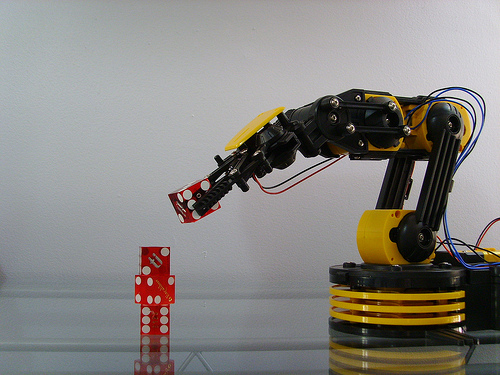In what is sure to be a contributing factor in the robot uprising, scientists are attempting to teach robots how to manipulate objects by helping them imitate object manipulation performed by others:
Given external observations of demonstrations on object manipulations, we believe that two underlying problems to address in learning by imitation is 1) segment a given demonstration into skills that can be individually learned and reused, and 2) formulate the correct RL (Reinforcement Learning) problem that only considers the relevant aspects of each skill so that the policy for each skill can be effectively learned. Previous works made certain progress in this direction, but none has taken private information into account.

Photo by Dan Ruscoe 
